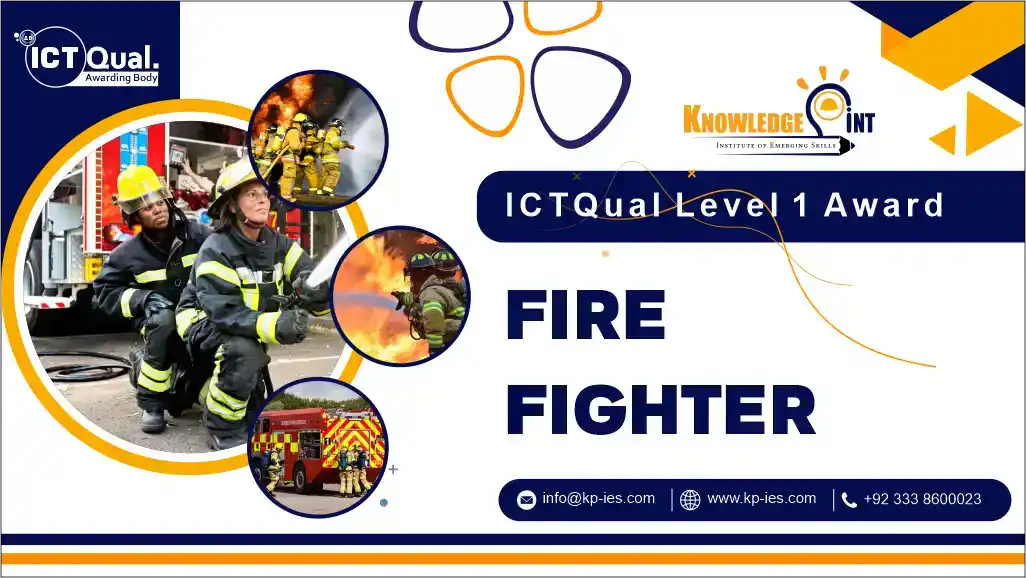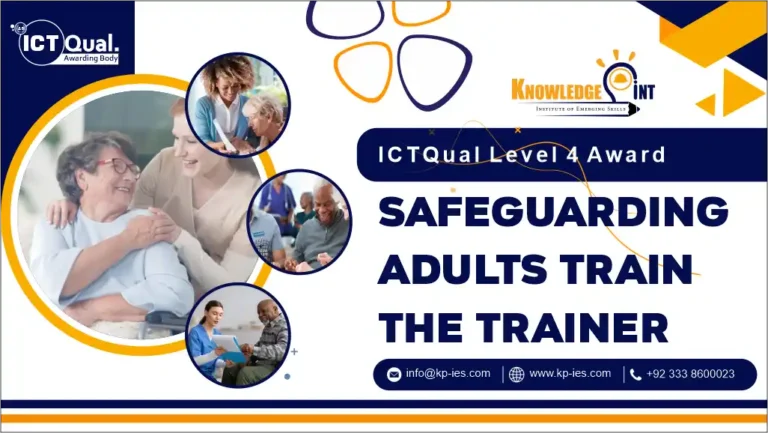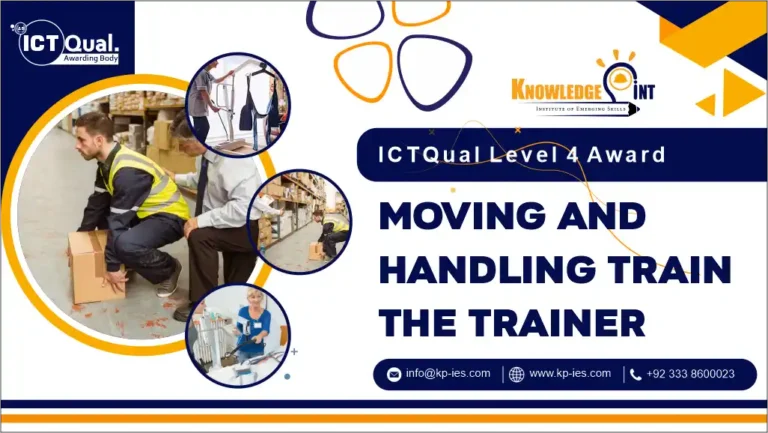In an emergency, knowing how to perform basic life-saving techniques can make all the difference. The ICTQual Level 1 Award in Basic Life Saving is designed to equip individuals with essential skills to provide immediate and effective assistance in life-threatening situations. This qualification is crucial for anyone interested in enhancing their emergency response abilities, whether for personal preparedness or professional application.
The ICTQual Level 1 Award in Basic Life Saving is an entry-level certification aimed at teaching fundamental life-saving techniques that can be applied in a variety of emergency situations. This course covers the basic principles and practices of first aid, focusing on immediate actions to stabilize and support individuals until professional medical help arrives.
The ICTQual Level 1 Award in Basic Life Saving provides essential training for anyone looking to make a positive impact in emergency situations. By mastering fundamental life-saving techniques, you not only enhance your ability to respond to emergencies but also gain confidence and skills that are invaluable in both personal and professional contexts. Whether you’re seeking to advance your career, improve your community involvement, or simply be prepared for emergencies, this qualification is a crucial step toward becoming a more capable and confident individual in life-threatening situations.
Course Overview
The ICTQual Level 1 Award in Basic Life Saving consists of 6 mandatory units which are as follows.
The future progression of the ICTQual Level 1 Award in Basic Life Saving can lead learners towards several pathways, depending on their career goals and aspirations in the field of law and related sectors. Here are some potential avenues of progression:
1. Introduction to Basic Life Saving
- Understanding the Importance of Basic Life Saving:
- Grasp the fundamental principles and significance of basic life-saving techniques in emergencies.
- Learn the role of first aid in providing immediate support and stabilizing individuals until professional help arrives.
- Basic Life Saving Principles:
- Understand the core concepts of first aid, including the steps to take in an emergency situation, the importance of assessing the scene, and ensuring personal safety.
2. Cardiopulmonary Resuscitation (CPR)
- CPR Techniques:
- Demonstrate the ability to perform CPR on adults, children, and infants, including proper chest compressions and rescue breaths.
- Understand the correct hand placement, compression depth, and rate for effective CPR.
- CPR Practice:
- Gain hands-on practice using CPR manikins to develop proficiency and confidence in delivering effective life-saving interventions.
3. Automated External Defibrillator (AED) Use
- AED Operation:
- Learn the correct procedures for using an AED, including how to power on the device, attach the electrode pads, and follow the voice prompts for delivering a shock.
- Understand when and how to use an AED in conjunction with CPR for individuals experiencing sudden cardiac arrest.
- AED Maintenance and Safety:
- Recognize the importance of maintaining and regularly checking AED equipment to ensure it is in working order and ready for use in emergencies.
4. Airway Management and Rescue Breathing
- Airway Management:
- Understand techniques for clearing and maintaining an open airway, including the use of head-tilt-chin-lift and jaw-thrust maneuvers.
- Learn to assess and manage blocked or compromised airways effectively.
- Rescue Breathing:
- Demonstrate the ability to provide rescue breaths to an unconscious individual with a compromised airway, using appropriate techniques for adults, children, and infants.
5. Choking Emergencies
- Choking Recognition:
- Identify the signs and symptoms of choking in adults, children, and infants.
- Understand the differences in symptoms and responses for various age groups.
- Choking Relief Techniques:
- Master techniques for relieving choking, including abdominal thrusts (Heimlich maneuver) and back blows for adults and children, and back blows and chest thrusts for infants.
6. Emergency Response and Scene Management
- Emergency Scene Assessment:
- Learn how to evaluate and manage an emergency scene to ensure safety for both the responder and the victim.
- Understand how to conduct a quick assessment of the situation, identify hazards, and prioritize actions.
- Effective Response Strategies:
- Develop skills in managing emergencies by coordinating with other responders, communicating effectively, and implementing appropriate first aid interventions.
- Legal and Ethical Considerations:
- Understand the legal and ethical responsibilities associated with providing first aid, including consent, confidentiality, and duty of care.
The learning outcomes of the ICTQual Level 1 Award in Basic Life Saving provide individuals with the essential skills and knowledge needed to respond effectively in emergencies. By mastering CPR, AED use, airway management, choking relief, and emergency scene management, participants are equipped to provide critical support and potentially save lives. This foundational training is crucial for anyone seeking to enhance their ability to handle emergency situations with confidence and competence.
Course Benefits of the ICTQual Level 1 Award in Basic Life Saving :
1. Specialized Expertise
- Auditing Proficiency: Gain specialized knowledge and skills in auditing energy management systems according to the ISO 50001:2018 standard.
- Industry Recognition: Earn a globally recognized qualification that demonstrates your proficiency as an energy management systems auditor.
2. Career Advancement
- Expanded Career Opportunities: Qualify for roles such as Lead Energy Auditor, Energy Management Consultant, or Compliance Officer.
- Higher Earning Potential: Enhance your value to employers and increase your earning potential with specialized expertise in energy management auditing.
3. Industry-Relevant Skills
- Practical Application: Acquire practical skills and techniques for planning, conducting, and documenting energy management system audits.
- Effective Communication: Develop communication skills to interact with auditees, audit teams, and stakeholders effectively.
4. Contribution to Sustainability
- Promotion of Energy Efficiency: Play a key role in promoting energy efficiency and reducing environmental impact within organizations.
- Support for Sustainable Practices: Assist organizations in implementing and maintaining energy management systems that support sustainability goals.
5. Quality Assurance
- Compliance Assurance: Help organizations achieve compliance with ISO 50001:2018 requirements and other relevant regulatory standards.
- Risk Mitigation: Identify areas of non-conformance and provide recommendations for corrective actions to mitigate risks.
6. Continuous Professional Development
- Lifelong Learning: Engage in continuous professional development by staying updated with the latest developments and trends in energy management auditing.
- Networking Opportunities: Connect with industry professionals, auditors, and experts, expanding your professional network and opportunities.
7. Organizational Benefits
- Improved Performance: Contribute to the improvement of organizational energy performance through effective auditing and recommendations for continuous improvement.
- Enhanced Reputation: Help organizations build a positive reputation for their commitment to energy management and sustainability practices.
8. Personal Growth
- Leadership Development: Develop leadership skills to effectively manage audit teams, delegate tasks, and ensure audit objectives are met.
- Confidence Boost: Gain confidence in your abilities as an energy management systems auditor through practical training and hands-on experience.
Completing the ICTQual Level 1 Award in Basic Life Saving is a valuable step towards becoming proficient in essential emergency response skills. This foundational qualification sets the stage for further advancement and specialization in the field of first aid and emergency management. Here are several pathways for progression after obtaining this award:
1. Advanced First Aid Qualifications
- ICTQual Level 2 Award in Emergency First Aid:
- This qualification builds on the basic life-saving skills learned in Level 1, covering more advanced first aid techniques and emergency care. It includes extended training in wound management, fractures, and medical emergencies.
- ICTQual Level 3 Award in First Aid at Work:
- Level 3 offers a more comprehensive understanding of first aid, suitable for workplace settings. It includes advanced first aid skills, such as dealing with more complex injuries and illnesses, and preparing individuals for roles as workplace first aiders.
2. Specialized Life-Saving Training
- Pediatric First Aid:
- Enroll in specialized training focused on first aid and emergency response for infants and children. This course covers pediatric-specific emergencies and treatments, essential for those working with children in any capacity.
- Advanced Cardiovascular Life Support (ACLS):
- Pursue advanced training in cardiovascular life support techniques, including the management of cardiac arrest and severe arrhythmias, often required for healthcare professionals.
- Basic Trauma Life Support (BTLS):
- Obtain certification in trauma life support, focusing on the management of trauma cases such as severe injuries and accidents, and enhancing skills in trauma care.
3. Professional Development and Certification
- Health and Safety Certification:
- Enhance your qualifications with certifications in health and safety, including roles such as health and safety officer or risk assessor. This can broaden your career prospects and expertise in emergency management.
- Emergency Management Certification:
- Pursue certifications in emergency management to gain a deeper understanding of planning and response for various emergency scenarios, including natural disasters and large-scale incidents.
4. Career Advancement Opportunities
- Emergency Medical Technician (EMT):
- Consider advancing to a role as an EMT, where you can provide medical care and transportation for patients in emergency situations. This role requires more extensive medical training and certification.
- Firefighter or Rescue Worker:
- Apply your life-saving skills in roles such as a firefighter or rescue worker, where you will be involved in both emergency response and fire safety.
- First Aid Instructor:
- Transition into a role as a first aid instructor, teaching others the skills you’ve learned and helping to train future first responders and life-savers.
5. Continued Education and Training
- Emergency Services Degree:
- Pursue higher education degrees related to emergency services, such as a diploma or degree in emergency management, public safety, or health sciences.
- Ongoing Professional Development:
- Engage in continued professional development through workshops, seminars, and conferences to stay updated with the latest advancements in first aid and emergency care.
6. Volunteer and Community Roles
- Volunteer First Responder:
- Get involved in volunteer roles with community organizations, such as local emergency response teams or disaster relief organizations, to apply your skills in a practical setting.
- Community Health Advocate:
- Work as a community health advocate, promoting awareness and education about first aid and emergency preparedness within your community.
The ICTQual Level 1 Award in Basic Life Saving is the starting point for a range of opportunities in the field of emergency response and first aid. By pursuing advanced qualifications, specialized training, and professional development, individuals can further their skills and enhance their career prospects in this crucial area. Embrace the pathways for progression to build on your foundational knowledge and make a significant impact in emergency situations and beyond.







